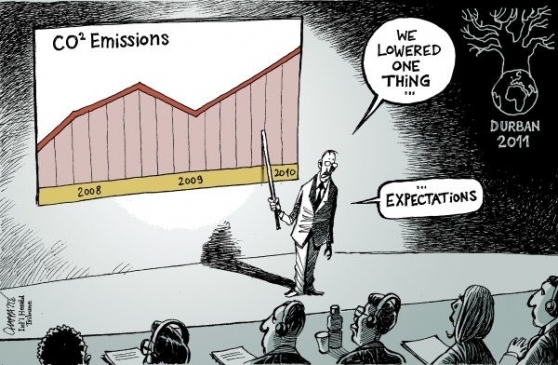Over Fishing Capacity--Institutional Idiocy?
 March 22, 2010 at 05:48PM
March 22, 2010 at 05:48PM What does the market creation of this overfishing capacity say about the efficiency and effectiveness of markets or policy or both? At the very least, it says nothing good, except this is a lesson from which we should learn quickly if we are to acquire the intelligence to manage our economy and its effects on the biosphere for continued prosperity and security, i.e., sustainability. See what Professor Pomeroy has to contribute based on “Managing Overcapcity in small-scale Marine Fisheries.”
------------------------------------------------------
THE STOCKHOLM SEMINARS: FRONTIERS IN SUSTAINABILITY SCIENCE AND POLICY
------------------------------------------------------
We have the great pleasure to invite you to the seminar: “Managing Overcapcity in small-scale Marine Fisheries,” Professor Robert Pomeroy, Principal Scientist, The WorldFish Center, Penang, Malaysia; Department of Agricultural and Resource Economics, University of Conneticut, US, Thursday April 8, 2010, 11.00–12.00, PLEASE NOTE THE LOCATION!, Room 251, Stockholm Resilience Centre, Kräftriket 2B, Stockholm University. Download the seminar announcement as a pdf-file at:
http://albaeco.se/sv/images/stories/File/pomeroy_100408.pdf
Please, post or circulate the announcement among your colleagues or put it on the note board. The seminars are open for all interested and free of charge. No registration needed.
---
ABSTRACT: Garcia and Newton (1997) estimated that in 1989, the world’s fishing fleet reflected an overcapacity of 25 to 53 percent with respect to maximum economic yield. Over the period, 1970-1990, world industrial fisheries harvesting capacity grew at a rate eight times greater than the rate of growth of landings from world capture fisheries (Greboval and Munro 1999). A report published by the World Wildlife Fund (Porter 1998) stated that the world fleet was two and a half times (150%) in excess of what the world fish stocks could sustain. FAO research shows that tuna fisheries worldwide have an average harvesting overcapacity of about 20 percent, although this varies from region to region. Similarly, a recent government study in the United States found that overcapacity exists in 55 percent of 73 important fisheries (FAO 2004). This presentation will discuss the concept and assessment of overcapacity in small-scale marine fisheries, and the appropriate and integrated approaches to facilitating the exit of overcapacity from small-scale fisheries. The recommendations presented in the presentation will assist governments and fisheries managers to prepare national and fishery-specific plans of action for the management of fishing overcapacity in the small-scale fishery.
ABOUT PROF POMEROY: Robert Pomeroy’s areas of professional interest are marine resource economics and policy, specifically small-scale fisheries management and development, coastal zone management, aquaculture economics, international development, policy analysis, and seafood market¬ing. Dr. Pomeroy has worked on research and development projects in over 40 countries in Asia, Africa, the Caribbean and Latin America. Prior to joining University of Conneticut he worked at the World Resources Institute in Washington DC from in developping a marine program. Prior to that, he worked at the International Center for Living Aquatic Resources Management (ICLARM) in Manila, Philippines. Dr. Pomeroy has his PhD in Resource Economics from Cornell University.
ABOUT THE STOCKHOLM SEMINARS - FOCUSING ON THE DYNAMICS AND STEWARDSHIP OF SOCIAL-ECOLOGICAL SYSTEMS. The Stockholm Seminars cover a broad range of perspectives on sustainability issues and are focused on the need for a sound scientific basis for sustainable development policy. The seminars are given at the Royal Swedish Academy of Sciences and are visited by a large audience, including scientists, students, media and policy makers in the public and private sector. The lectures are free of charge and open for all interested. For more information contact Albaeco: 08-674 74 00, e-mail: info@albaeco.com, or visit www.albaeco.se/stockholmseminars
ARRANGED BY:
- The Beijer Institute of Ecological Economics, the Royal Swedish Academy of Sciences
- The Stockholm Resilience Centre, Stockholm University
- The Stockholm Environment Institute, SEI
- The International Geosphere-Biosphere Programme, IGBP, the Royal Swedish Academy of Sciences
- Albaeco (Albaeco 2009, http://www.albaeco.se)
--------------------------------------------------------------------
 Sustainability 2030 |
Sustainability 2030 |  Post a Comment |
Post a Comment | 



Reader Comments